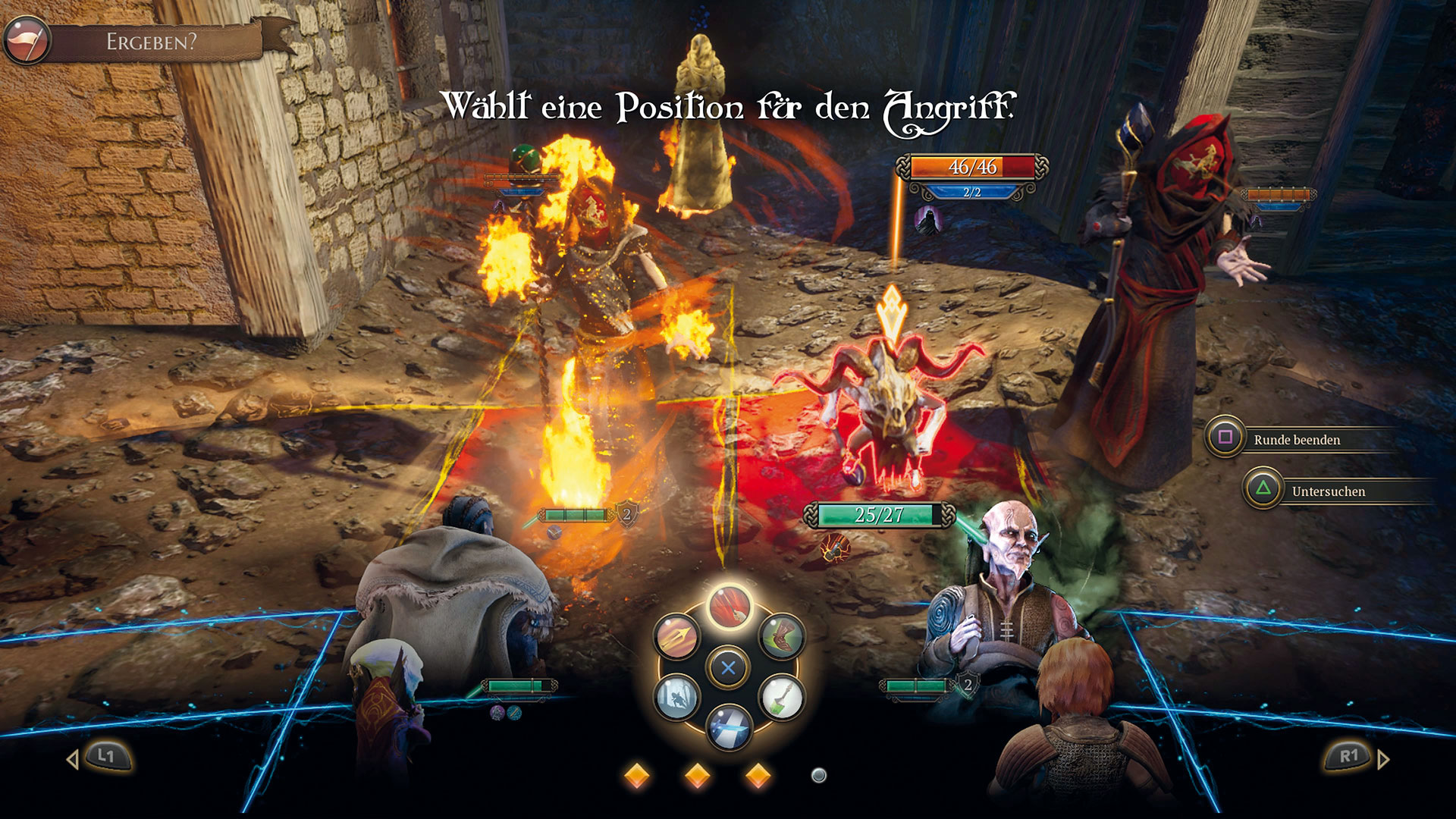

Each character has four skills and one piece of equipment they can use in combat, so its like having 10 cards you can play in combat, but you can only choose and play 4. Your party starts with two characters, but you have 4 actions (called opportunites). Soon you are faced with guiding multiple fairies or turning six totems to advance.Īlso combat works fairly well, and as I understand it was built around card game mechanics. Then you encounter the same type of puzzle again, but its more complicated. Choose the correct face and the fairy flies where you want. First you learn to turn a totem with 4 faces.
The bards tale 4 how to#
You learn how to solve a puzzle, such as getting a fairy to fly to a patch of mushrooms. The puzzles are for the most part logical. The Bard's Tale IV's core systems, namely its puzzles and its combat work well. The symbol on the table indicates hidden treasure is nearby. This Bard Song lets you find hidden stashes. Magic mouths will also address you upon your approach, chanting out their riddles.

Also, a number of the game's many riddles are sound oriented. It's a typical element in The Bard's Tale IV, that you will come across areas that you can't access, and which you can return to later with the right song in order to open up a whole new area. One songs blasts through weak walls, another rebuilds stone structures, another lets you talk to dead spirits, and yet another reveals hidden stashes of treasure. You use these songs to solve environmental problems. The voice acting, performed by Scottish actors, is genuinely good, as is the quality of the music, and Scottish folk music isn't what I prefer to listen to. I think if sound is important to you in a game, then you probably should play some The Bard's Tale IV just to see what the game accomplishes here. I'll also freely admit that I can turn off the sound in games and still enjoy a game for its gameplay or story. Sound is an afterthought in a lot of games. Its biggest success is in the area of sound. The Bard's Tale IV does succeed in some areas. Just one example of the importance of sound in The Bard's Tale IV. The Bard (a live actor) effectively narrates the whole story in loading screens. I find if you're going to fail, it's better to fail ambitiously than to fail be being forgettable and nondescript.

I find it admirable to try to excel in so many areas. In short, it tries to do a lot with its limited budget.

It's a game with authentic Scottish musicians, and fully voiced characters. There is also, of course, combat and character advancement. There are secrets, traps, and many, many puzzles. The Bard's Tale IV offers a full-blown story with quests, companions, and lore. The original games were dungeon crawlers, with the focus on combat and leveling up your party, with some cool puzzles and traps thrown in, and the occasional story snippet. The Bard's Tale IV's Ambition: Its Charm and Its Downfall I started after about 15 hours thinking about abandoning my The Bard's Tale IV game but came back to the game a couple of times before actually quitting, so I actually played 20 hours before throwing in the towel. The first are the games I give 4-5 hours to before I realize I just can't be bothered with and the latter are the long games, like The Bard's Tale 4 IV, that are fun enough to continue with, but at some point are just no longer appealing when I have many other games in my backlog. I actually finish most games I play, but there is a decent minority of games I don't. I tend to review games I finish, which is why as one of my readers complained I tend to give "good" or "very good" reviews. It's not procedurally generated but is a hand-crafted game with many different areas, and it introduces new content each time the player enters a new area. The Bard's Tale IV isn't that kind of game. I'm no longer sure it's appropriate to review a game after finishing about 1/3 of it, unless it contains the same content repeated again and again. This isn't a review, so I won't approach it as I normally approach a review.


 0 kommentar(er)
0 kommentar(er)
